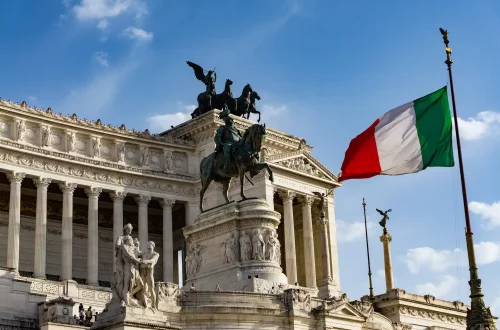Obtaining Italian citizenship is a dream for many, opening doors to a new cultural identity and a wealth of opportunities within the European Union. However, the journey to become an Italian citizen comes with several costs. These costs can vary significantly depending on the route taken, whether it’s through ancestry, marriage, residency, or a judicial process.
This text will explore the different costs involved, including official fees and expenses for services and documentation. By understanding these factors, prospective applicants can better prepare for the financial commitment required to achieve their goal.
The path to Italian citizenship is far from one-size-fits-all—each route comes with its own specific requirements, timelines, and costs. For example, applying through ancestry (jus sanguinis) requires demonstrating that you have at least one Italian parent or grandparent born in Italy, and that they held exclusive Italian citizenship at the time of their death.
In contrast, acquiring citizenship through marriage or residency involves different eligibility criteria, supporting documents, and verification procedures, depending on your individual circumstances.
Judicial proceedings—currently the only available route for obtaining Italian citizenship by descent—can be notably complex and costly. Regardless of the pathway pursued, applicants should be prepared for both official fees and additional expenses, such as legal representation, translation services, and the preparation of supporting documentation.
Official fees and documentation costs
One of the first financial hurdles in the Italian citizenship process is the payment of official fees. These fees cover various aspects of the application process, including the cost of obtaining required Italian records and documents. For example, applicants must procure birth, marriage, and death certificates for every relative in the line of descent.
Each document comes with its own cost, which can add up quickly, especially if multiple generations need to be traced. Furthermore, as of 2025, Italian documents that are over 100 years old require an additional fee of €300.
Moreover, these documents often need to be translated into Italian and authenticated with an apostille in order to be recognized officially. The cost of translation and apostille can vary, depending on the length and complexity of the documents.
It’s crucial to use certified translators to ensure that the translations meet the standards required by Italian authorities. Failure to do so can result in delays or even rejection of the application, leading to additional costs and frustration.
Take advantage of specialized assistance to secure your passport for a borderless future.
Professional fees (lawyers, consultants, and translators)
Navigating the Italian citizenship process can be daunting, especially for those unfamiliar with the legal and bureaucratic landscape. This is where professional services come into play. Lawyers and consultants can provide invaluable assistance, guiding applicants through the complexities of the application process. However, their expertise comes at a significant cost.
Legal assistance is particularly crucial for those pursuing citizenship through judicial routes. Lawyers who specialize in Italian citizenship can help prepare and present cases in court, ensuring that all necessary legal requirements are met.
In response to recent legal reforms in Italy, many individuals may turn to the judicial route as an alternative path to citizenship. Legal experts argue that the changes introduced by Decree-Law 36/2025, and later confirmed by Law No. 74 on May 23, 2025, contain unconstitutional provisions and should be formally challenged in court.
As a result, the judicial process is expected to become an increasingly popular and strategic option, even after the anticipated establishment of a centralized governmental authority to oversee administrative Italian citizenship applications.
Italian citizenship lawyer fees can vary widely, depending on the complexity of the case and the level of service provided. While this represents a substantial additional cost, the expertise of a lawyer can significantly reduce the risk of errors and delays, ultimately saving money and stress in the long run.
Consultants, on the other hand, can assist with the overall management of the application process. They can help gather and prepare documents, deal with Italian authorities, and ensure that all steps are completed correctly.
This comprehensive support can be especially beneficial for applicants with busy schedules or those who find the process overwhelming. Like legal services, consultancy fees can vary, but the investment can provide peace of mind and a smoother path to citizenship.
Family costs: Benefits of joint applications
For families seeking Italian citizenship, there are opportunities to reduce costs by applying jointly. Families can share certain fixed costs, such as professional charges. This can result in significant savings compared to individual applications. For instance, the cost of obtaining and translating documents can be shared among family members, reducing the overall financial burden.
Additionally, joint applications can streamline the process, making it more efficient and less time-consuming. By coordinating their efforts, families can ensure that all necessary documents are obtained and prepared correctly, reducing the risk of delays or rejections.
This collaborative approach can also provide emotional support, as family members navigate the process together, sharing experiences and offering encouragement.
Take advantage of specialized assistance to secure your passport for a borderless future.
Estimated Total Cost and Professional Advice
Given the various factors involved, estimating the total cost of obtaining Italian citizenship can be challenging. However, a rough average can be provided based on typical expenses. A complete Italian citizenship process, including full consultancy support from a service like io.citizen, can range from $1,500.00 to $25,000.00. This estimate includes the cost of obtaining and preparing documents, official fees, and professional services.
While this may seem like a significant investment, it’s important to consider the long-term benefits of Italian citizenship. In addition to the cultural and personal advantages, Italian citizenship grants access to the European Union, providing opportunities for travel, work, and education. Moreover, a reliable service like io.citizen can ensure a safe and efficient experience, helping to avoid extra expenses from mistakes and rework.
If you’re interested in learning more about the total cost and steps involved in obtaining Italian citizenship, io.citizen can provide a clear and precise estimate of the necessary investment. By consulting with our experienced professionals, you can gain a better understanding of the process and ensure that you are well-prepared for the journey ahead.
Achieving the dream of becoming an Italian citizen is an exciting and rewarding journey. With the right preparation and support, you can navigate the complexities of the application process and enjoy the many benefits that Italian citizenship has to offer. Don’t let the costs and challenges deter you from pursuing this opportunity. Contact io.citizen today to begin your journey towards becoming a proud Italian citizen.






